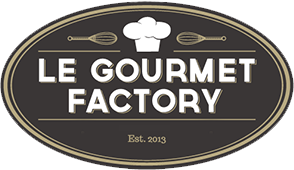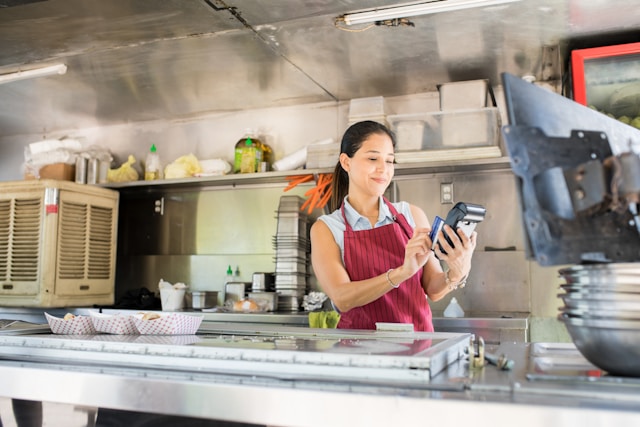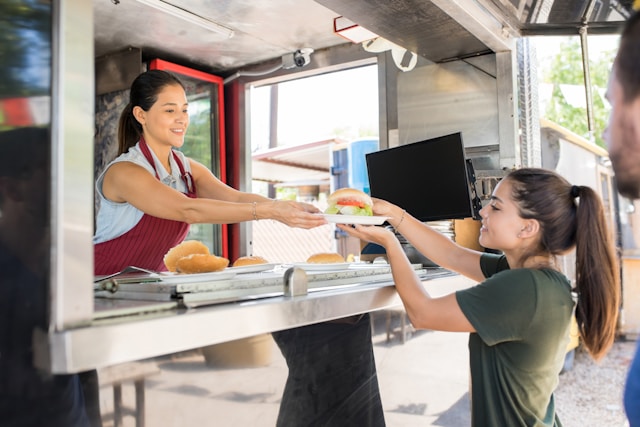The Food Truck Business Model: A Framework for Success
Explore the food truck business model: mobility, flexibility, and low costs. Learn the framework for success in this thriving culinary industry.

Continue exploring the next articles in this series:
Navigate the food truck permitting process with ease. Learn about essential licenses, application steps, and tips for compliance in this…
Discover the pros and cons of starting a food truck business. Learn about the benefits, challenges, and how to navigate…
Or navigate back to explore other related content :
Discover the essentials of the food truck business, from market relevance to success tips. Explore its potential in today’s thriving…
01: Introduction
The food truck business model represents an innovative and flexible approach to the culinary industry. By combining mobility with affordability, food trucks enable entrepreneurs to reach diverse customer bases while maintaining lower overhead costs. This article will explore the fundamental components of the food truck business model, including its operational structure, advantages, and challenges. By understanding this model, aspiring food truck owners can make informed decisions and position themselves for long-term success.
At the end of this post, you’ll find links to dive deeper into critical aspects of food truck business planning, permits, and evaluating its pros and cons.
02: What is the Food Truck Business Model?
The food truck business model is built on the concept of delivering food to customers in various locations via a mobile kitchen. This setup allows owners to operate without the constraints of a fixed location, providing significant flexibility in targeting high-traffic areas, events, and festivals. The model is ideal for small-scale operations seeking to test innovative ideas or expand their reach without the financial burden of a traditional restaurant.
03: Key Components of the Business Model
Mobility
One of the defining features of the food truck model is its mobility. Food trucks can operate at different locations throughout the day, such as business districts during lunchtime and entertainment areas in the evening. This adaptability enables owners to maximize visibility and sales.
Target Audience
Understanding the target audience is crucial. Food trucks typically cater to busy professionals, event-goers, and food enthusiasts seeking convenience and unique dining experiences. Tailoring menus and marketing strategies to these demographics ensures better customer engagement.
Low Overhead Costs
Compared to traditional restaurants, food trucks require significantly lower initial investment and ongoing expenses. Owners save on rent, utilities, and staffing, making it a cost-effective option for new entrepreneurs.
Menu Design
Menus are streamlined to ensure efficiency in preparation and consistency in quality. Typically, food truck menus focus on a few key offerings to minimize waste and optimize ingredient usage.
04: Advantages of the Food Truck Model
Flexibility and Adaptability
The mobility of food trucks allows owners to adjust their location based on demand, weather, and local events. This flexibility helps maximize sales potential while reducing risks associated with fixed locations.
Creative Freedom
Food trucks offer a platform for chefs and entrepreneurs to experiment with innovative menu ideas and culinary concepts. This creativity often sets food trucks apart from their competitors and attracts loyal customers.
Customer Connection
Operating in high-traffic areas enables food truck owners to build direct relationships with customers. The personal interaction creates a loyal customer base and fosters a sense of community.
05: Challenges in the Food Truck Business Model
Regulatory Compliance
Operating a food truck involves navigating complex regulations, including health permits, parking restrictions, and zoning laws. Understanding local requirements is essential for avoiding fines and disruptions.
Maintenance and Repairs
Since food trucks function as both kitchens and vehicles, they require regular maintenance to ensure smooth operations. Unexpected breakdowns can lead to costly downtime.
Competition
The food truck industry is highly competitive, especially in urban areas. Standing out requires a strong brand identity, innovative menu items, and effective marketing.
06: Trends in the Food Truck Industry
Sustainability Initiatives
Many food truck operators are adopting eco-friendly practices, such as using biodegradable packaging and sourcing local ingredients. These efforts appeal to environmentally conscious customers.
Technology Integration
Digital tools, including online ordering platforms and mobile payment systems, streamline operations and enhance the customer experience. Leveraging technology is increasingly important in the modern food truck landscape.
Collaboration Opportunities
Some food trucks collaborate with breweries, markets, and event organizers to expand their reach and create unique customer experiences.
07: Next Steps in Your Food Truck Journey
Understanding the food truck business model is the first step toward building a successful venture. To dive deeper into specific areas, explore the following articles:
Food Truck Business Planning: Learn how to develop a comprehensive plan for your food truck business.
Food Truck Business Permits: Understand the legal requirements for operating a food truck.
Food Truck Business: Pros and Cons: Evaluate the advantages and challenges of running a food truck.
By combining this foundational knowledge with detailed planning and execution, you’ll be well on your way to creating a thriving food truck business.
- FAQ
fREQUENTLY ASKED QUESTIONS
What is the food truck business model?
It’s a mobile approach to serving food, enabling entrepreneurs to operate without a fixed location, reduce costs, and reach diverse audiences.
Why is mobility important in the food truck model?
Mobility allows food trucks to adapt to changing demand, attend events, and maximize sales by targeting high-traffic areas.
What are the key benefits of the food truck model?
Benefits include lower startup costs, flexibility in operations, creative freedom, and direct customer engagement.
What challenges do food truck owners face?
Common challenges include navigating regulations, maintaining vehicles and equipment, and standing out in a competitive market.
Where can I learn more about food truck business planning?
Check out our article on Food Truck Business Planning for tips on creating a solid plan for your food truck venture.
Continue exploring the next articles in this series:
Learn how to do a winning food truck business planning. From market research to financial planning, this guide sets you…
Navigate the food truck permitting process with ease. Learn about essential licenses, application steps, and tips for compliance in this…
Discover the pros and cons of starting a food truck business. Learn about the benefits, challenges, and how to navigate…
Or navigate back to explore other related content :
Discover the essentials of the food truck business, from market relevance to success tips. Explore its potential in today’s thriving…
- 176A South Van Brunt Street Englewood, NJ 07631
Copyright © 2023 Le Gourmet Factory. All Rights Reserved. Website Design, SEO and Internet Marketing by Creative Click Media.




